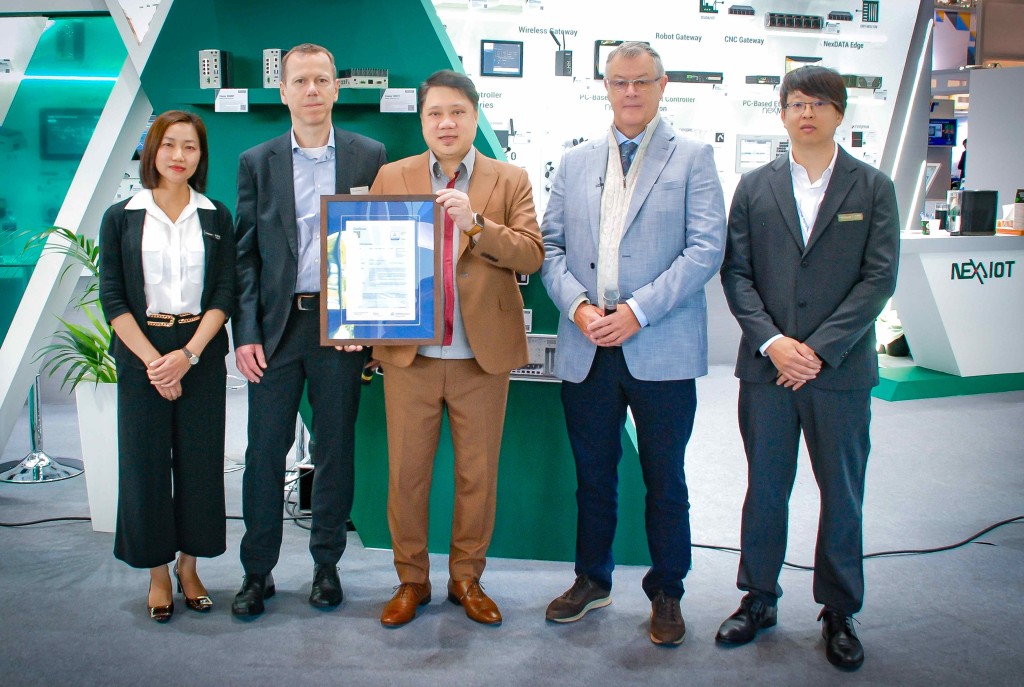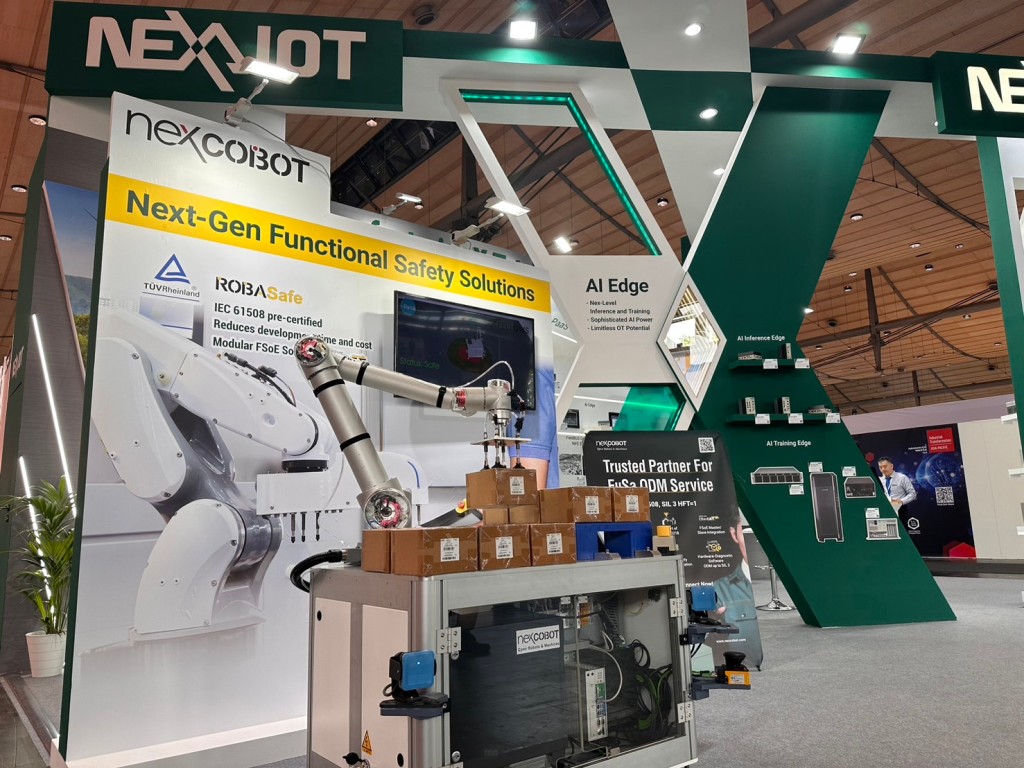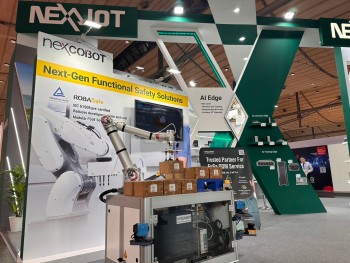NexCOBOT Partners with Intel to Reveal Safety Controller with TÜV Rheinland Functional Safety Certification at Hannover Messe
Taiwan | 23 April, 2024

NexCOBOT , a subsidiary of leading industrial computer maker NEXCOM Group, specializes in the development of universal motion control and robot control products. A long-time investor in smart machinery, the company formed a partnership with Intel in 2020 to develop products for its x86 safety control platform to help the industry accelerate its development of safety functions required in many applications. On April 23, Thomas Steffens, Regional Segment Manager at TÜV Rheinland Group, presented NexCOBOT with its EN/IEC 61508 and EN/ISO 13849-1 functional safety certificates at Hannover Messe. This certification is a symbol of the company’s professionalism in R&D on the Intel x86 platform. It also represents recognition from TÜV Rheinland, an international certification body, of the company’s R&D into functional safety products.
Smart machinery designed for human-machine collaboration is becoming the flavor of the market. The safety requirements for smart machinery become more demanding once people and production are involved. TÜV Rheinland is an international independent testing and certification body that has always been the leader in the functional safety field. NexCOBOT has engaged TÜV Rheinland to provide functional safety product certification services since 2020. Its entire development process from product design and planning, definition of specifications, and development to product testing is closely assessed by professional certifiers from TÜV Rheinland to ensure conformity with rigorous functional safety specifications set by international standards.
At the certificate presentation, Jenny Shen, General Manager of NexCOBOT, stated that most safety controller products on the market right now are either MCUs or ARM chips with functional safety. The latest TÜV Rheinland certified product is the first safety controller platform based on a single stand-alone Intel x86 processor. Its EN/IEC 61508 SIL 2 and EN ISO 13849-1 Cat. 3 / PL d safety ratings speed up the entire development cycle for safety applications by allowing users to concentrate on the development of functional safety applications and software.
Thomas Steffens emphasized that the NexCOBOT SCB100 safety controller was certified based on a comprehensive and detailed assessment according to the relevant functional safety standards. The certification is also proof that the R&D engineering team at NexCOBOT fully understood the requirements of the relevant standards. The SCB100 product conforms to requirements for SIL 2 in the EN/IEC 61508 standard and Cat. 3 / PL d in the EN ISO 13849-1 standard, and can therefore be used or integrated into programmable electronic systems involving SIL 2 or Cat. 3 / PL d safety.
According to TÜV Rheinland, nuclear energy, aerospace, mechanical equipment, industrial control, robotics, automobiles, and domestic appliances are all industries in which functional safety has a role to play and which services can be applied to personnel, enterprises, and products. The Group recommends that vendors looking to enter the functional safety field should conduct a self-assessment before progressively introducing personnel certification, process certification, and product certification into the product life cycle. Assurance of safety functionality by product certification performed by an acknowledged Certification Body, like TÜV Rheinland, means greater customer trust due to increased reliability and enhanced mitigation of safety hazards. TÜV Rheinland offers extensive experience and professional assessment for functional safety services. Related services include ISO 26262, ASPICE, TISAX, as well as Cybersecurity services referring to standard ISO/SAE 21434, and penetration testing. TÜV Rheinland is widely recognized and trusted in the industry due to its years of experience in the assessment and certification of safety systems as well as exacting understanding of standards.

_core_1_x.png)

_core_350px_x.png)